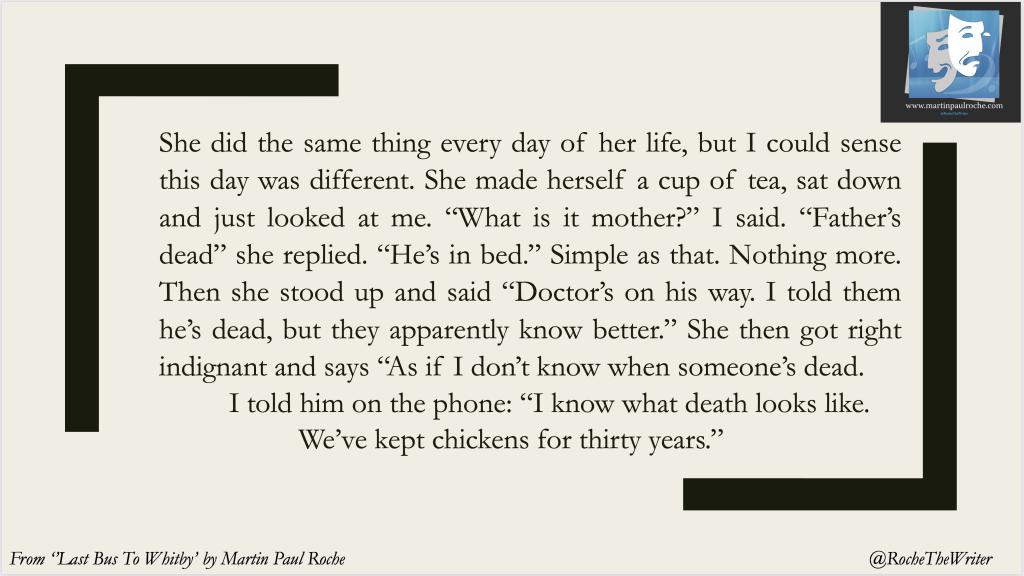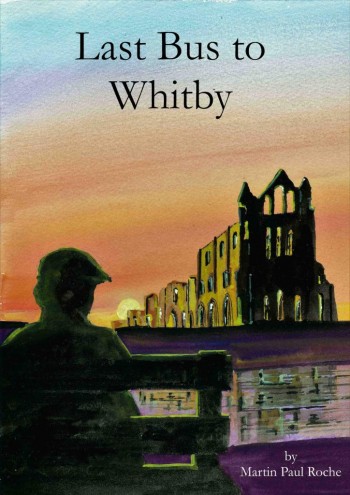For further information concerning licensing, click HERE

***'Ancient and Modern' and 'Last Bus to Whitby' will be returning to the stage during summer 2026!***
‘Big Al’ is taking a bus journey to Whitby.
It is a journey he has waited his whole life to take.
He is an innocent abroad and clearly, an innocent to so much more.
During his trip he speaks to an unseen fellow passenger about his journey and unsurprisingly, as is the case with so many passengers, he talks about more than the view. As his journey twists and turns, so do his disclosures and eventually, the reason for it is laid bare, as is his life and his plans for it.
‘Last Bus to Whitby’ is a play about resonance and honesty with oneself; about finding peace. It explores in a gentle, innocent and bygone way, how happiness and self-fulfilment, do not, for some, require other people or wealth to make them a reality. All it sometimes needs is a stranger to listen and the opportunity to talk. But life’s journey sometimes hands us the most unexpected of opportunities to find our own perfect moment and within it, much needed clarity and peace of mind. And clarity of mind can be found in the most surprising of places.
Even the 840 bus to Whitby.
Although a continuous one act play, it is divided up into five ‘chapters’ as indicated in the printed script:
“Did a lot of sighing did Father.”
“I consider townsfolk the most egregious of types.”
“I bloody hated haddock”
“Tick tock, tick tock."
“I am the happiest man alive.”

Thoughts on the character
He is over 50 and this is evident in the nature and structure of the language, the references he uses. The dialogue provides a flavour of his (almost) closed world and upbringing, cossetted by the traditional values of his parents. He has a strong accent. He is ‘old fashioned’ in manner and bearing, older than his years, almost innocent and with a painfully simple and upbeat disposition. He is uncomplicated, gentle, naïve, warm, sincere, sensitive and unreservedly honest – an open book, losing himself at times in the moment, in the view, in the journey, of what was and what could have been. In resolution, his solution to obtaining closure and happiness reveal a glimpse into the turmoil many suffer and tragically, the extent they will go to in finding peace; the normalising of his decisions and actions by sanitising and romanticising and finally, justifying the true nature of his journey. Hopefully, it illustrates that mental health issues co-exist with us all throughout our lives. For many, they remain concealed in plain sight.
Although written for a male character, the piece is not gender-specific and it may be adapted for performance by anybody with minor adjustments to the text.
Description
A one act play with a running time of approx 45 minutes.
One actor who in the original version is male but with alternative versions available (see below). No formal set required and therefore, very simple to stage. This piece is also very well suited to be used as a radio play.
NB: An alternative version of this play, set in Ireland is also available: 'Last Bus to Moher' may be obtained by using the 'Contacts' page.
The view that inspired a play
Please note that the script for the original play is contained within the published collection from the author, 'The First Ten Plays' which can be obtained at cost price from this site by going to the 'In Print’ tab.
